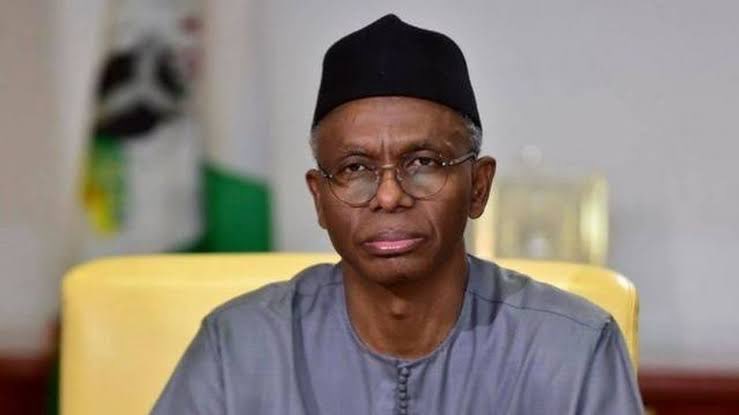Nasir El-Rufai declares NLC president wanted over labour strike

The labour crisis rocking Kaduna state has taken a new turn as the governor there, Nasir El-Rufai, has declared the Nigeria Labour Congress (NLC) National President, Comrade Ayuba Wabba and other leaders of the union wanted.
NLC in the state had embarked on strike to protest against mass disengagement of workers and other alleged anti-labour moves by the government.
Wabba had during the flag-off of the action on Monday said the strike action would last the entire week unless the state government attended to the workers grievances.
The labour union also grounded all economic activities in the state.
The state has also been thrown into darkness by the electricity workers union, supply of petroleum product cut by Nupeng (Nigeria Union of Petroleum and Natural Gas Workers), and aviation and railway workers also shut the Kaduna International Airport and the Kaduna-Abuja train service.
El-Rufai on his verified Twitter page on Tuesday declared the labour leaders wanted for ‘economic sabotage & attacks on public infrastructure under Miscellaneous Offences Act.’
He tweeted, “KADUNA UPDATE: Ayuba Wabba & others of @NLCHeadquarters declared wanted for economic sabotage & attacks on public infrastructure under Miscellaneous Offences Act. Anyone that knows where he is hiding should send a message to @MOJKaduna. KDSG. There will be a handsome reward!”
KADUNA UPDATE: Ayuba Wabba & others of @NLCHeadquarters declared wanted for economic sabotage & attacks on public infrastructure under Miscellaneous Offences Act. Anyone that knows where he is hiding should send a message to @MOJKaduna. KDSG. There will be a handsome reward!
— Nasir Ahmad El-Rufai (@elrufai) May 18, 2021
Why is the NLC on strike in Kaduna state?
Earlier, the Kaduna state government announced that it was spending over 90% of the states revenue on civil servants and it wants to ‘rightsize’ the state’s civil service. NLC alleges that the state plans to cut as much as 9000 jobs across the state’s civil service.
Nigeria survived the tragic consequences of the Coronavirus pandemic largely unscathed, but the economic effects is beginning to buckle most states.
In Kaduna, the pandemic plus the menace of criminal gangs known as bandits has led to most businesses closing down which has devastating consequences on the state’s ability to generate revenue.
